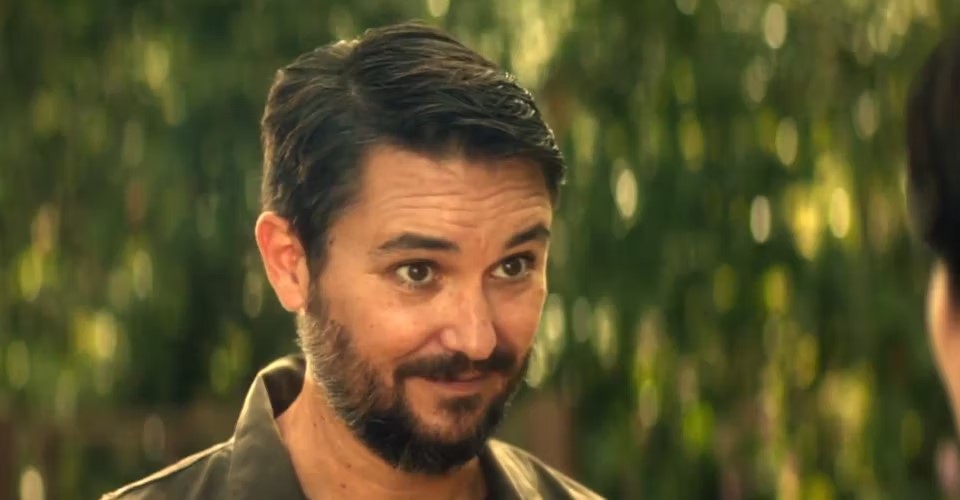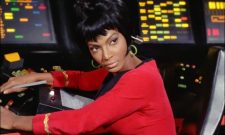It was great seeing Wesley Crusher again, or whatever he calls himself nowadays, but it was bittersweet as well. The Wil Wheaton cameo in the second season finale of Star Trek: Picard came out of nowhere, which is the problem.
Fans like me who always felt Wesley was given short shrift were pleasantly surprised to see him in a Star Trek episode again. However, the brief drop in came off as less a triumphant return and more of a trivial sop to a character who was always underappreciated and underdeveloped. It really did not add anything to the plot and offered no clear avenue for meaningfully contributing to the franchise going forward.
Earlier reports that Wesley would not join the Star Trek: The Next Generation reunion in season three of Picard reignited a long simmering debate about his legacy. Adding him as a fleeting afterthought served only to underscore how Wesley was shortchanged during his time on the show as well as when he departed.
The animosity directed towards the lone teenager in the TNG cast was always a black eye for a fandom that values positivity and diversity. On a personal level, it’s quite upsetting because I identified with the fresh-faced navigator early on and still see more of me in him than any other character in the Trek continuum.
It is a travesty that the “Shut up, Wesley” meme born from the TNG season one episode, “Datalore,” defines the character to this day. Particularly galling is the fact that Wesley was right in this instance while Picard was the impetuous one who hastily dismissed Wesley’s opinion. This sad chapter continues to taint a culture that is otherwise extremely inclusive and open-minded.
One of the most endearing qualities of the Star Trek universe is how everyone feels represented. As a young man watching TNG as it first aired, it was vindicating to see someone roughly my age in the middle of the action. Wesley was steering the Enterprise to strange new worlds just as he and I were navigating a difficult stage of life.
Sure, Wesley got in the way at times and had some very cringey moments — that comes with the territory of being a teen. That’s part of why I liked him. His travails mirrored mine, though on a more galactic scale. He totally geeked out at all the cool stuff surrounding him, just as I would have.
Maybe that’s it. In a fan culture that is so invested in this distinct mythos, Wesley Crusher was the groupie that got to be there in the thick of things. He got to touch all the blinking buttons, sit in the bridge, and take the ship to warp when Picard said “Engage.” Perhaps some of us believe he was not worthy of such a privilege.
Wesley as the ultimate fan boy has been essentially confirmed by the fact that Wil Wheaton has become the effective master of ceremonies for the Star Trek franchise in recent years. Wheaton now hosts The Ready Room, which appears after new episodes of Star Trek programming on Paramount+. He also helped emcee major events, such as the 2021 First Contact Day and Star Trek Day celebrations.
More likely, it is something deeper than blatant jealousy that made the most famous acting Ensign in TV history such a polarizing figure. Wesley is a mirror that some are loathe to gaze into too deeply. The truth is, most Star Trek devotees can relate to Wesley, they just may not want to admit it. It’s not easy to face the demons of our youth. How many of us shy away from going to high school reunions or thumbing through yearbooks because we don’t want to be reminded of what things were like for us at that age?
I once felt this way, but time and a teenage daughter always ready to set me straight have strengthened my resolve. Yet, it is easy to see how weary others are to delve into their own insecurities. Perhaps Wesley is just a little too on the nose for some Trekkies.
If anything, Wesley should have embraced his inner geek more. He should have spent less time trying to fit in at the adult table on the bridge and in engineering and more time hanging out in the corridors of the ship that Picard and the rest of the senior officers seldom traversed. Lower Decks has shown that is where the real fun is. (How is it that Wesley never made it down to Cetacean Ops?)
Nonetheless, it’s entirely understandable that young Mr. Crusher would want to ingratiate himself with the crew. Trying too hard to fit in is also a part of adolescence. The desire to act like an adult when one is surrounded by them is completely natural. It would seem Wesley’s big sin was that, in a universe full of all sorts of extraterrestrial beings, he was just too damn human.
If we are to be honest about the flaws of a show we love, we must acknowledge that Wesley was a missed opportunity, not a mistake. He was put on the show as an obvious ploy to appeal to a younger audience. There is nothing wrong with that, except that relatively little effort was put into developing him compared to the other roles. TNG never allowed him to really grow and reach his full potential.
This is unfortunate, since he provided an important perspective aboard the Enterprise that the other crew members could not — the young child of a single parent. Sadly, that side was never adequately explored.
For a family show, TNG criminally downplayed family relationships. Although TNG introduced the notion of having families aboard starships, it largely treated family life like a pre-warp civilization — something to be viewed from a distance.
After all, Keiko and Miles O’Brien had to jump ship to Deep Space Nine before we ever got an intimate glimpse at their struggles to raise a family while constantly saving the day. It turns out that even the awe-inspiring technology of the future can’t completely alleviate the tension of balancing work and family. Successive generations here on earth have learned the same lesson.
It wasn’t only how Wesley was depicted in the show, but also how he left, that was tragic. His fate in the season seven episode, “Journey’s End,” was a cop out. Becoming a Traveler effectively ended Wesley’s arc, but the open-ended nature provided no one with any satisfaction.
Detractors objected to how Wesley was elevated into a God-like force that could travel the cosmos, but it was really a fate worse than death. The Picard cameo proved that evolving him into a higher lifeform makes him practically worthless from a narrative point of view — beyond shoehorning him in the plot for fan service.
The Traveler served no real role in the story. On the other hand, there was no way to provide him with a more substantial part without exposing the fact that he could have easily remedied the entire situation. He wasn’t even given a chance to interact with his old captain.
Poor Wesley was given enormous power, but robbed of any closure. His fate only served to dehumanize and sideline him.
There are better ways to bring Wesley back. Perhaps an episode of Short Treks could have him return to his old flame, Salia, on Daled IV, from the TNG second season episode, “The Dauphin.” That episode painfully captured the awkwardness of young love, with the added twist of his crush turning out to be an enigmatic ball of energy. Coincidentally, that is how I viewed all women at that age.
Now that he is in a better position to understand her, they could possibly rekindle their romance. He could easily take her to all the places she always wanted to visit but could not. It need not be a universe-shattering event that would amend canon. Then again, what is more impactful than love overcoming all odds?
Unfortunately, it is unlikely Wesley will ever be revisited in a substantive way. Far too many see him as a pimple on an otherwise unblemished face. Instead, he should be viewed as a birthmark; something that is distinctive, not detractive. The Next Generation would have been an even better show if that had been the attitude from the beginning.
Wesley seems destined to suffer the fate of Apollo in the classic Original Series episode, “Who Mourns for Adonais?” He will be allowed to fade away, perhaps with a few more meaningless cameos along the way.
Wesley deserves better. In the end, Wesley Crusher didn’t fail Star Trek; Star Trek failed Wesley.



I agree with you – while it was great and unexpected seeing him in Picard, I really had hoped for more if they ever brought him back. He could have been a great foil for Q for one thing and I feel like they totally blew that opportunity.